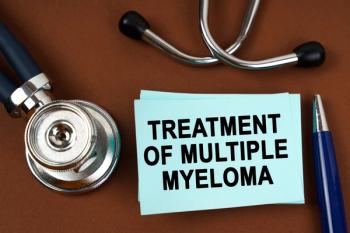
Iron Supplements Speed Hemoglobin Recovery Time in Blood Donors
Hemoglobin recovery time following blood donation can be shortened with iron supplementation.
Hemoglobin recovery time following blood donation can be shortened with iron supplementation.
For their study published in JAMA, researchers examined donors across 4 regional blood centers in the United States in order to determine the effect of oral iron supplementation on hemoglobin recovery time, as well as recovery of iron stores, in both iron-depleted and iron-replete blood donors.
“Should donors be told to wait longer…between donations to allow their hemoglobin levels to fully recover from the blood donation—which might reduce the overall supply of blood available for patients– or take an iron supplement to increase their iron levels and improve their hemoglobin recovery?” study author Joseph E. Kiss, MD, told Pharmacy Times.
Dr. Kiss added that it has not been fully understood how health care professionals can best manage the issue of low iron levels in otherwise healthy blood donors, which can impact their health later on.
The 215 eligible participants had donated a 500 mL unit of whole blood and had a history of 1 or more successful blood donations, but none within the previous 4 months. The only iron supplements the participants used were those provided by the researchers.
The donors were randomized to receive either 1 tablet of ferrous gluconate (37.5 mg of elemental iron) or no iron for 24 weeks of follow-up. Compared with those who received no iron for the duration of the study, participants taking iron supplementation had significantly shortened time to 80% hemoglobin recovery, which was seen in both the iron-depleted (ferritin ≤26 ng/mL) and iron-replete (ferritin >26 ng/mL) donor groups.
“Hemoglobin recovered faster when taking iron supplements if donors were iron-depleted, that was expected; but we also found that that was the case in some donors who were not iron-depleted, which we did not expect,” Dr. Kiss told Pharmacy Times. “…We believe this is because of the iron deficit from blood donation, essentially lowering ferritin in some donors to iron-deficient levels post-donation, thus delaying their erythropoietic recovery.”
In addition, all participants who received iron supplements took a median of 76 days to recover iron stores, while those who did not took longer than 168 days. In fact, two-thirds of the participants without iron supplements did not recover iron stores by the 168-day mark.
Thus, the researchers concluded that low-dose iron supplements can reduce the time to hemoglobin recovery in blood donors, compared with no supplementation.
In light of those findings, Dr. Kiss stressed that blood donors should be made aware of their post-donation iron levels and discuss potential iron supplementation with their health care professionals.
Newsletter
Stay informed on drug updates, treatment guidelines, and pharmacy practice trends—subscribe to Pharmacy Times for weekly clinical insights.








































